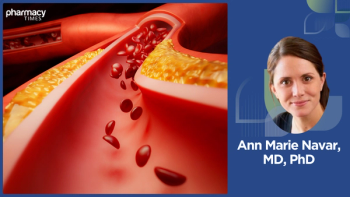
Asymptomatic Carriers of C diff Have 24-times Greater Risk for Developing C diff Compared to Noncarriers
Routine screenings for C diff on admission to the hospital could possibly prevent C diff transmission in the hospital setting.
Asymptomatic carriers of the Clostridioides difficile (C diff) bacterium who are hospitalized rarely transmit the bacterium to other patients, according to the results of a recent study tracking imported C diff strains in a US intensive care unit (ICU) that were published in JAMA Network Open. These findings may further support the efficacy of current C diff infection (CDI) prevention strategies in hospitals to limit cross-transmission.
During the 9-month ICU study, only 1% of patients admitted to the ICU acquired C diff via cross-transmission; however, asymptomatic carriers—carriers of C diff who do not show clinical symptoms of CDI—were found to be more likely to contract CDI.
CDI is a common health care-associated infectious disease that results in diarrhea. It can be incredibly costly on health systems and lead to morbidity and mortality. Research is starting to evaluate asymptomatic carriers as reservoirs of C diff in the health care setting, seeing that 29% of patients who enter a hospital may be asymptomatic carriers of the spore.
This longitudinal, observational, single-center study aims to characterize risk factors associated with patients who asymptomatically carry C diff into an ICU unit and evaluates associated burden and dynamics of transmission. Investigators collected culture-based screenings of nearly every patient admitted to the US-based ICU during a 9-month period, conducting genomic, microbiological, and epidemiological analyses with whole-genome sequencing (WGS) to all identified isolates of C diff found in the samples.
The screening showed that there were 67 patients who came to the ICU with asymptomatic and toxigenic C diff during the 9-month study period. These patients were not shown to pose a high risk of transmitting the C diff bacterium to other patients in the ICU; however, the C diff carriers did have an observably higher likelihood of contracting CDI than patients without C diff. In fact, C diff carriers had a 24-times higher risk of developing CDI while at the hospital compared to noncarriers.
Probiotics, fidaxomicin prophylaxis, fecal microbiota transplantation, and antimicrobial stewardship programs are all promising interventions to prevent CDI in C diff carriers. Antimicrobial stewardship is the most common intervention to prevent hospital-wide CDI, but these interventions have not been evaluated for individual carriers.
Study limitations include only using patients from 1 ICU in an affluent country, limiting the generalizability of findings; possibly underestimating the number of transition links and co-colonizing strains; potentially having patients with undetected C diff; having no confirmation that certain strains were dominant for later CDI cases; and possibly over-diagnosing CDI.
While the study supports that current prevention strategies are relatively effective, there were infrequent transmissions; during this 9-month period, there were 6 genomically-tested C diff transmissions at the ICU. This data supports implementing basic hygiene practices and single-patient rooms to minimize cross-transmission. In addition, screening patients for C diff on admission could allow for the prevention of C diff transmission in the hospital setting.
“Further reductions in hospital-onset CDI will require developing more effective strategies to interrupt the transition from colonization to clinical infection,” wrote study authors in the article. “[This] will have a greater impact on further reducing the risk of CDI in this setting than investing additional resources aimed at interrupting cross-transmission.”
Reference
Miles-Jay A, Snitkin E, Lin M, et al. Longitudinal genomic surveillance of carriage and transmission of Clostridioides difficile in an intensive care unit. Nat Med. 2023;29:2526–2534. doi:10.1038/s41591-023-02549-4
Newsletter
Stay informed on drug updates, treatment guidelines, and pharmacy practice trends—subscribe to Pharmacy Times for weekly clinical insights.

































